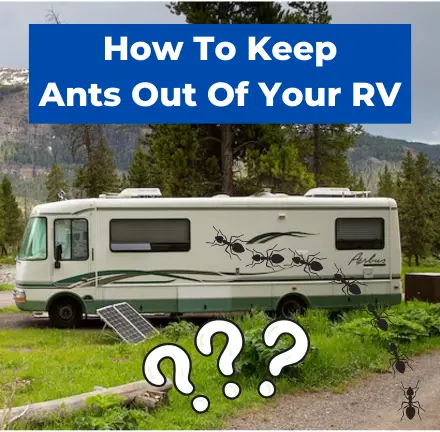Ants can be a nuisance in any environment, but they can be particularly problematic in an RV. These tiny insects can easily find their way into an RV through any small opening, and once they get inside, they can be difficult to get rid of. Luckily there are several ways to keep ants out of an RV and how to get rid of ants in an RV.
One of the most important steps in keeping ants out of an RV is to seal any gaps or cracks that ants might use to enter the vehicle. This can include sealing around windows and doors, as well as sealing any gaps in the RV’s exterior. RV owners can also use bug spray and powders to create a barrier that will repel ants and other insects. Also keeping the RV clean and free of food scraps can help to discourage ants from entering the vehicle in the first place.
We’ll go over everything you need to know in order to get ants out of your RV and keep them out for good in this guide.
Why Ants Are a Problem in RVs
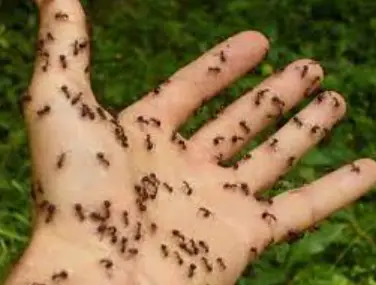
Ants can be a significant problem for RVers, especially during the summer months. They are attracted to the sweet and sugary substances found in food and drinks, and they can easily find their way into your RV through even the smallest of cracks and crevices.
Once inside, ants can quickly become an infestation, and they can be challenging to get rid of. They can crawl into your food storage areas, contaminate your food, and even damage the structure of your RV.
Ants are particularly problematic for RVers because they can easily hitch a ride on your RV from one location to another. This means that even if you manage to get rid of them in one location, they can quickly reappear in your next destination.
Ant infestations can also be a health hazard, especially for those with allergies to ant bites or stings. Additionally, some species of ants can cause damage to your RV’s electrical wiring, which can be costly to repair.
Preventing Ants in Your RV
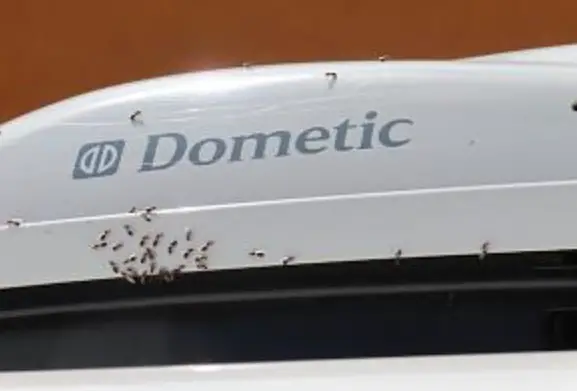
Ants can quickly become a nuisance in an RV, and preventing them from entering is crucial. Here are some effective ways to keep ants out of your RV.
Sealing Your RV
One of the most important things to do is to seal any openings in your RV that ants can use to enter.
Check for holes, gaps, and cracks around windows, doors, vents, and utility hookups. Use caulk or silicone to seal these openings, preventing ants from finding their way inside.
Cleaning Your RV
Keeping your RV clean is another effective way to prevent ants from entering. Dirty dishes and food crumbs can attract ants, so be sure to clean up after meals and wipe down surfaces regularly.
Sweep or vacuum the floors frequently, and keep trash in sealed bags and dispose of it regularly.
Storing Food Properly
Storing food properly is crucial in preventing ants from entering your RV. Use airtight containers to store food, and avoid leaving food out on counters or tables.
Keep your pantry organized and clean, and regularly check for any signs of ants.
Natural Ant Repellents
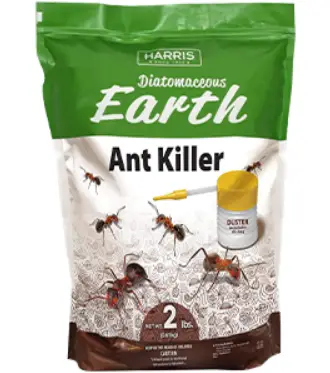
There are several natural products and remedies that can help keep ants out of your RV. Here are some of the most effective ones:
Diatomaceous Earth – The Best Non-Toxic Remedy
Diatomaceous earth is a natural, non-toxic substance that can kill ants by dehydrating them. It is made from the fossilized remains of diatoms, a type of algae, and is safe to use around humans and pets.
To use diatomaceous earth as an ant repellent, sprinkle it around the areas where ants are entering your RV.
Borax and Sugar
Borax is a mineral that can be used as a natural ant killer. When mixed with sugar, it can attract ants and kill them.
To use borax and sugar as an ant repellent, mix equal parts of borax and sugar and place the mixture in a shallow dish near the ant trail.
Baking Soda and Powdered Sugar
Baking soda can change the acidity of ants and over time, kill them. When mixed with powdered sugar, it can be an effective ant repellent.
Just mix equal parts of both and place the mixture in shallow dishes near ant trails.
White Vinegar
White vinegar is a natural ant repellent that can disrupt the ants’ scent trails and make it difficult for them to find their way into your RV.
Mix equal parts of white vinegar and water and spray the solution around the areas where ants are entering your RV.
Citrus Peels or Orange Oil
Citrus peels or orange oil can be used as a natural ant repellent. The strong scent of citrus can deter ants from entering your RV.
All you have to do is place the peels or oil in areas where ants are entering your RV.
Coffee Grounds
Coffee grounds can be used as a natural ant repellent. The strong scent of coffee can mask the ants’ scent trails and make it difficult for them to find their way into your RV. Simply sprinkle coffee grounds in areas where ants are entering your RV.
Cinnamon
Cinnamon is a natural ant repellent that can disrupt the ants’ scent trails and make it difficult for them to find their way into your RV.
Again, just sprinkle it around the areas where ants are entering your RV.
Peppermint Oil, Mint Leaves, or Bay Leaves
Peppermint oil, mint leaves, or bay leaves can be used as a natural ant repellent. The strong scent of these herbs can deter ants from entering your RV. Place the leaves or spray the oil in spots where ants are getting into your RV.
Using Ant Baits and Insecticides
Ant baits and insecticides are two effective methods for keeping ants out of your RV. These methods work by either killing the ants or repelling them from your RV. Here are some tips on using ant baits and insecticides to keep ants out of your RV.
Ant Baits
Ant baits are a common and effective way to get rid of ants. Ant baits contain a slow-acting poison that ants carry back to their nest, where it eventually kills the entire colony.
Here are some tips for using ant baits in your RV:
- Place the ant baits near ant trails and common entry points to attract and eliminate ants.
- Keep the ant baits away from food and food preparation areas.
- Check the ant baits regularly and replace them as needed.
Insecticides
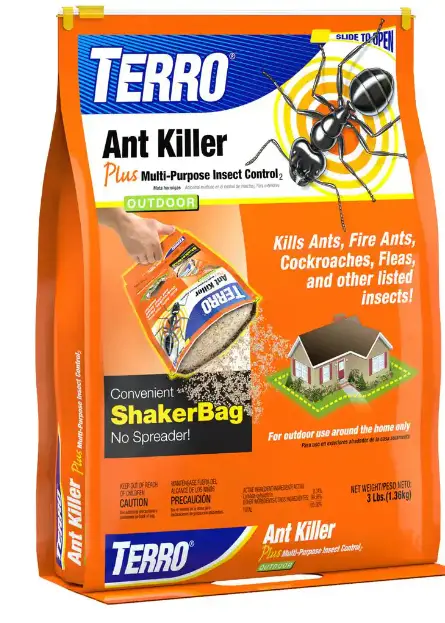
Insecticides are another effective way to get rid of ants. Insecticides work by killing the ants on contact or repelling them from your RV.
Here are some tips to follow for using insecticides to rid your RV of ants:
- Choose an insecticide that is labeled for use in RVs.
- Follow the instructions on the label carefully.
- Apply the insecticide to areas where ants are entering your RV or where they are most likely to be found.
- Keep children and pets away from treated areas.
It is important to note that both ant baits and insecticides contain poison, so it is important to use them carefully and according to the instructions on the label. If you have any concerns about using ant baits or insecticides in your RV, consult a pest control professional for advice.
Sealing Entry Points for Ants
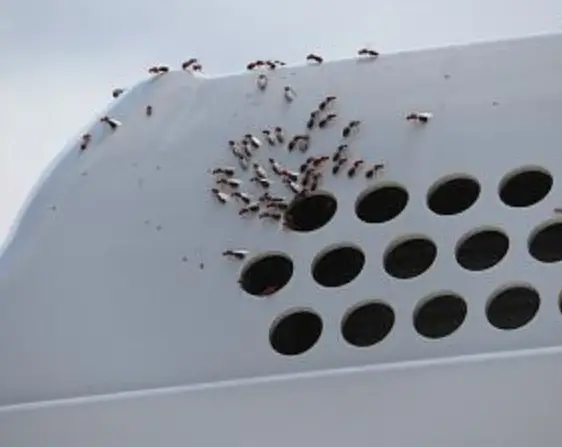
One of the most important steps in keeping ants out of your RV is to seal any entry points that they can use to get inside. This includes windows, doors, and vents. By taking the time to properly seal these areas, you can greatly reduce the likelihood of an ant invasion in your RV.
Windows
RV windows are a common entry point for ants, especially if they are not properly sealed. To keep ants out, it is important to inspect your windows and make sure that there are no gaps or cracks that ants can use to enter.
If you do find any gaps or cracks, you can use caulk or silicone to seal them. This will create a barrier that ants cannot cross.
Doors
Doors are another entry point that ants can use to get inside your RV. To keep ants out, it is important to make sure that your doors are properly sealed.
You can do this by inspecting the weatherstripping around the door and making sure that it is in good condition.
If the weatherstripping is damaged, you can replace it to create a tight seal that ants cannot penetrate.
Vents
Vents are another common entry point for ants, especially if they are not properly screened. To keep ants out, it is important to inspect your vents and make sure that they are properly screened.
RV air conditioner vents are particularly susceptible to ant penetration.
You can also use a citrus-based cleaner or essential oil to deter ants from entering through your vents.
Dealing with Ant Infestations
Ant infestations can be a common problem for RVers, especially during the summer months. If you notice an infestation of ants in your RV, it’s important to take action as soon as possible to prevent the problem from getting worse.
Identifying Ant Trails
One of the first steps in dealing with an ant infestation is to identify the ant trails. Ants leave a chemical trail for other ants to follow, so if you can find the trail, you can disrupt it and prevent the ants from returning.
Look for lines of ants moving back and forth between a food source and their nest.
Getting Rid of Ants
Once you’ve identified the ant trails, there are several methods you can use to get rid of the ants. Here are a few effective options:
- Ant Baits: Ant baits are a popular solution for getting rid of ants. These baits contain a slow-acting poison that the ants will carry back to their nest, eventually killing the entire colony.
- Non-Traditional Repellents: There are several natural repellents that can be effective in keeping ants away. Some of the most popular options include cinnamon, peppermint oil, and vinegar.
- Boric Acid or Diatomaceous Earth: Boric acid and diatomaceous earth are both effective at killing ants. These powders work by dehydrating the ants, eventually leading to their death.
Pour Boiling Water On Ant Mounds
If you notice an ant mound outside of your RV, pouring boiling water on it can be an effective way to kill the ants.
Boiling water will kill the ants on contact and can also destroy the ant mound, preventing the ants from returning.
If you have an infestation of carpenter ants or other types of ants it may be necessary to call in a professional exterminator to deal with the problem.
Here are some other great pest control guides for your RV:

